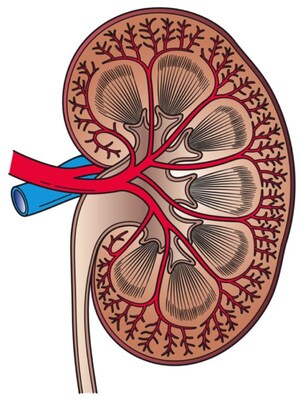Chung-Ang University Study Reveals Sustainable Business Solutions for Food Cold Chains
Researchers provide a set of critical success factors for mitigating the recent challenges faced by the food cold chains in China
SEOUL, South Korea, Aug. 23, 2022 /PRNewswire/ -- The agricultural food cold chain (AFCC) is an important player in the food-supply industry, which ensures safe and efficient food distribution with minimal wastage- from farm to table. With the rise in consumer demand in emerging nations, the industry is recently facing challenges on multiple fronts, ranging from environmental and economic costs to social disparities. Some of these concerns include increased energy consumption, high carbon emissions, food wastage, and insufficient wages for employees. This has, therefore, created a growing need to develop sustainable solutions for the AFCC industry. Although there are numerous studies on solutions for developed countries, only a few reports for developing economies exist.
To bridge this gap, researchers from China and South Korea conducted a "systems" analysis to comprehend the processes that contribute to the AFCCs' sustainable practices. The team led by Prof. Keun-sik Park, identified and evaluated the critical success factors (CSFs) that drive these practices in China. The study was recently published in Business Strategy and the Environment, and cited the current problems of China's cold chains. Prof. Park explains the rationale of their study by saying, "The urbanization of China is accelerating the demand for cold chains, which in turn is exacerbating the environmental, cost, and social problems. As a result, we must develop systematic practices that reinforce effective green initiatives."
The researchers executed this study by reviewing and analyzing diverse aspects of sustainability, based on the institutional theory (factors mediating the rules and behavior of organizations), the stakeholder theory (considering individuals affected by the organization), and the triple line model (the social, environmental, and financial impacts of an organization). The team began by conducting literature search, data collection, and interviews, followed by expert evaluation and decision analysis for 58 institutions located in Beijing, China. An 'Adversarial Interpretation Structure Model' (AISM) was then used to identify 15 CSFs that contribute to AFCC sustainability.
Next, they determined the hierarchical interrelationship between the CSFs and the driving forces that operate. According to the analysis, the crucial drivers consisted of managing stakeholder pressure, strategic positioning, sustainable policy, top management commitment, and sustainable investment. Consistent with previous studies, tackling stakeholder pressure emerged as the most significant factor.
The findings emphasize that organizations need to handle pressure from stakeholders comprising the government, investors and consumers, which demands committed and methodical leadership. They also have to keep in mind their employers' rights and consumer feedback that ensure community welfare issues. Besides, the government should fund businesses at the stakeholder level to ensure timely and adequate money for implementing sustainable AFCC. Effective channels of communication with AFCC enterprises are required to foster trust and increase operational and production transparency.
Taken together, this study provides a detailed theoretical framework for the development of sustainable business strategies for AFCC in China and is pertinent in the domains of management and policy-making.
Hopeful about the outcomes of this study, Prof. Park says, "Our study suggests that it is necessary to establish a clear relationship between stakeholders within companies pursuing AFCC business. This can ensure continuous improvement of sustainable practices of AFCC and aid in a smoother green transition."
Title of original paper: Identifying critical success factors for the agri-food cold chain's sustainable development: When the strategy system comes into play
Journal: Business Strategy and the Environment
DOI: https://doi.org/10.1002/bse.3154
Website: https://neweng.cau.ac.kr/index.do
Read more about Prof. Park here: https://scholarworks.bwise.kr/cau/researcher-profile?ep=444
Seong-Kee Shin
02-820-6614
[email protected]
SOURCE Chung-Ang University

WANT YOUR COMPANY'S NEWS FEATURED ON PRNEWSWIRE.COM?
Newsrooms &
Influencers
Digital Media
Outlets
Journalists
Opted In






Share this article